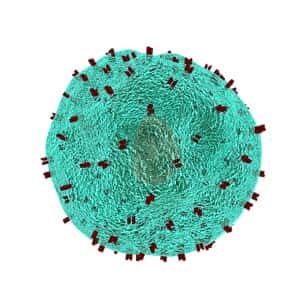
Immune cell therapies against cancer have researchers excited.
Over the last few years a number of new drugs have been approved for hard-to-treat malignancies such as melanoma and lung cancer. They work by encouraging the immune system to better recognize and attack cancer. (You can read about Opdivo, Keytruda and Yervoy here.)
T-Cell Therapy:
Now a new type of immune-based treatment is showing extraordinary promise. Scientists remove the patient’s own T cells and treat them so that they will recognize his or her particular cancer markers. Then the T cells are injected back into the patient.
Preliminary results on these immune cell therapies have just been reported at the annual meeting of the American Association for the Advancement of Science. They seem encouraging.
Obstinate Blood Cancers Are Responding:
In one study of patients with acute lymphoblastic leukemia who had stopped responding to chemotherapy, 94% had their symptoms completely disappear. Patients with non-Hodgkin’s lymphoma also had surprisingly good responses to T cell therapy.
While this line of research on immune cell therapies is still experimental, it is generating enthusiasm among normally cautious scientists. Stimulating the immune system comes with side effects, however. Some patients experience fever, low blood pressure and serious neurological symptoms as a result of the immune system reaction.
Nevertheless, immunotherapy may soon become one of the key approaches for hard-to-treat cancers.
AAAS Annual Meeting, Feb. 14, 2016, Washington, DC

